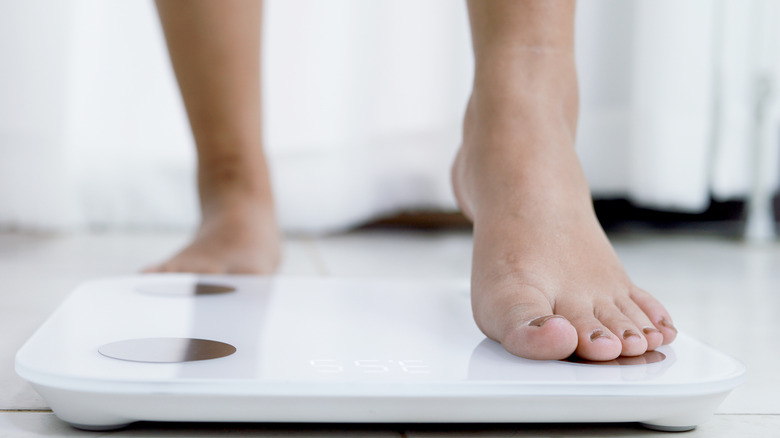What Are Weight Loss Shots And How Do They Work?
Weight loss shots are marketed as a treatment to help people lose weight (via Medical News Today). Among the most popular types of weight loss shots are lipotropic injections. Usually administered in weight loss clinics, these injections consist of a mixture of various nutrients that are meant to make it easier for people to burn body fat and lose weight.
The goal of these substances, or lipotropes, is to affect the metabolism by aiding in the removal of fat around the liver and reducing the production of body fat. While lipotropic injections often contain vitamin B12, different clinics tend to have different ingredients and formulas.
Some of the other more common lipotropes include methionine, inositol, and choline, all of which are supposed to play an important role in fat metabolism. In particular, vitamin B12 and methionine are essential in the regulation of fat and protein metabolism, but this doesn't necessarily mean that taking doses of these substances will result in weight loss.
Do weight loss shots work?
There is no scientific evidence to support the claim that lipotropic injections can help you lose weight (via Verywell Fit). In fact, most available research is outdated and inconclusive. Although some studies refer to diet, the findings do not discuss weight loss or list it as a primary outcome. Furthermore, there is no mention of using injectables to promote weight loss.
However, a new weight loss injection approved by the U.S. Food and Drug Administration (FDA) in June 2021 has shown some positive results, according to the clinical trials. Called Wegovy, the injection is the first drug for chronic weight management to be approved since 2014 and is intended for people with a body mass index (BMI) of 30 or higher. Results from the clinical trials show that participants lost an average of 6% to 12% of their initial body weight.
If you're looking to lose weight and are interested in weight loss shots, you should consult your doctor first (via Healthline). They will most likely come up with a health and fitness plan for you to try before recommending further measures. Such a plan will likely include regular exercise, drinking more water, eating less sugar and processed foods, getting more sleep, and learning to manage your stress.

